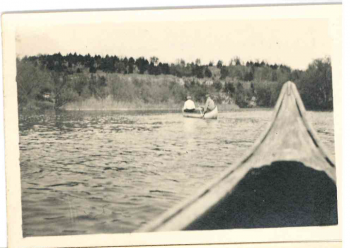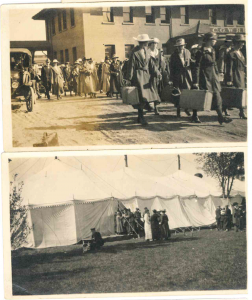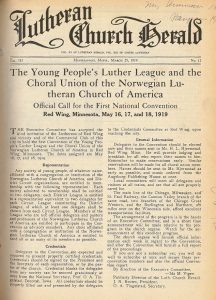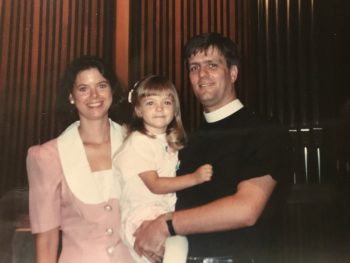Easter Monday Thank You Notes
April 13th, 2020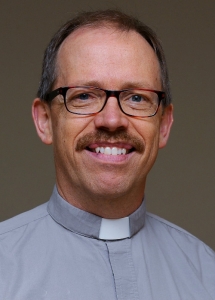 By Pastor John Hulden
By Pastor John Hulden
A friend of mine asked for laments on her Facebook page last week. All day Good Friday, while in quarantine, she fasted and prayed those laments aloud. This was her way to be in community while physically apart.
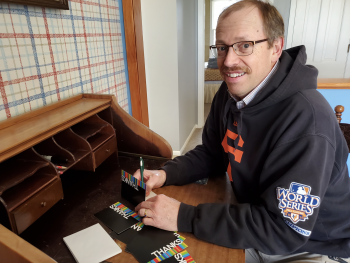
John’s writing his thank you notes by hand, … and in a blog!
A pandemic is surely a time for lament. People are sick from this virus. We fear this virus, and for good reason. This virus is a killer, and it will keep killing people, young and old, for weeks and months to come. We must be vigilant. We must “shelter in place” — or my preferred phrase, “just stay put!” We need to listen to the scientists and the epidemiologists, now and in the future.
“Despite the radical changes imposed on our lives by this pandemic, I witnessed Minneapolis Area Synod congregations celebrating the Festival of the Resurrection yesterday.”
I’ve already lost count of how many weeks we’ve been in quarantine. Then, yesterday happened. Easter! Christ is Risen. Christ is Risen, indeed!
Despite the radical changes imposed on our lives by this pandemic, and still holding on to the many laments we carry and share. … nevertheless, I witnessed Minneapolis Area Synod congregations celebrating the Festival of the Resurrection yesterday. Wow! I saw amazing creativity and resiliency in adapting to these forced changes in our lives and in our way of doing and being church. So today, on Easter Monday, I have one overwhelming feeling: Gratefulness.
MAY MY LIST OF “thank yous,” in no particular order, encourage you to remember to be grateful during this time of lament.
Thank you, Ignatius, Mom, and Jimmy Fallon, … for reminding me to write thank yous.
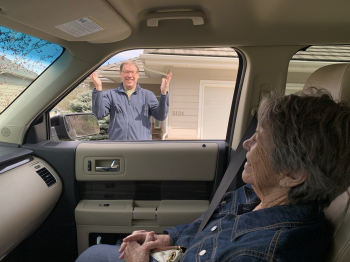
Thank you, sister out in Washington State, … for driving Mom over to see our big brother (staying six feet away).
Thank you, God, … that Jesus didn’t stay dead.
Thank you, parents in our synod, … for leading faith activities at home.
Thank you, “mute” and “stop video” buttons, … on Zoom calls.
Thank you, Lutheran theology, … for teaching us that God works through the government.
Thank you, church techy people on the backside of the cameras and in front of soundboards, … for helping our congregations use the internet more effectively.
Thank you, Creator, … for the super moon last week and for spring.
Thank you, pastors and deacons, … for morphing into pandemic televangelists.

Thank you, Facebook messenger, … so this grandma can connect with our adorable grandson after his haircut.
Thank you, women at the tomb, … for going to the cemetery even though resurrections were illegal.
Thank you, justice organizer colleagues, … for your upcoming email on new ways to love your neighbor.
Thank you, King David, … for the Psalms.
Thank you, church staff people, … for your creative leadership and dedication.
Thank you for Zoom games … like escape room and home scavenger hunt (someone yells out an item, the first one back with the item wins, but don’t yell out scissors — because you shouldn’t run with scissors).
Thank you, stimulus package, … so congregations can keep paying their staff.
Thank you, Bill Withers and John Prine, … for poetry, melodies, and legacies through song.
Thank you, health care workers, … and the workers, family, and friends who help health care workers.
Thank you, church musicians, … for continuing to use your talents to help us worship.
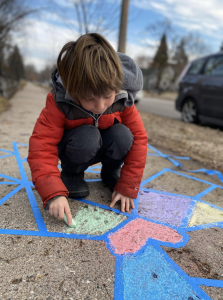
Thank you, happy thoughts, … drawn with chalk art. Photo credit: Katie Schroeder (Sons Peter, 7, and Julian, 5, were the chalk artists.)
Thank you for the upcoming stimulus checks; … may those who are able give that money to the poor.
Thank you, hearts, … for being on so many windows.
Thank you for creativity … that erupts from living and working with severe limits.
Thank you, scientists, … for being so smart.
Thank you for deep learning; … may this disruption help the Spirit unveil to us what is really important.
Thank you, Palestinian Christian leader Nora Carmi, … for your words:
Let me tell you something from the land where the whole thing actually happened. In Easter 2020, we get to celebrate like the first disciples did. There wasn’t ‘church’ or ‘priests’ or fancy worship services — there was only the good news that Jesus had risen from the dead! Now go and tell it as fast as you can! (quoted in an email from Sojourners Magazine 4/7/2020)

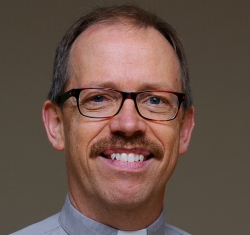
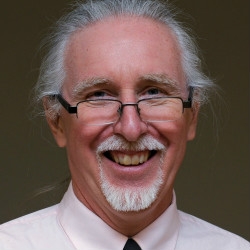
 By Bob Hulteen
By Bob Hulteen 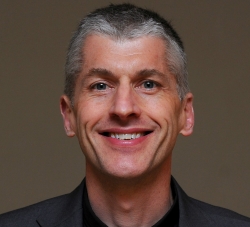
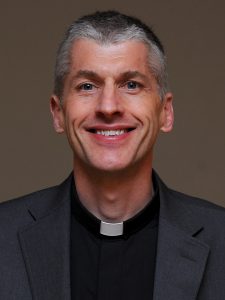 By Pr. Craig Pederson
By Pr. Craig Pederson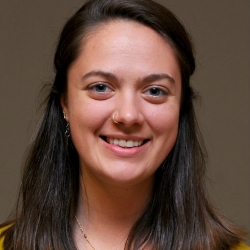
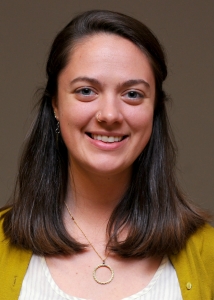 By Emilie Bouvier
By Emilie Bouvier
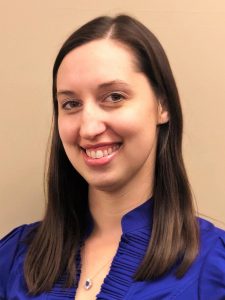 By Brenda Blackhawk
By Brenda Blackhawk 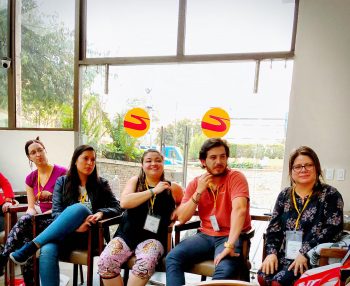
 I heard young Indigenous Lutheran women from Costa Rica talk about their Indigenous traditions and spirituality and heard my own story echoed in theirs. And as the older, more assimilated folks asked questions about how they reconcile their Indigenous spirituality with Jesus and the Bible, I watched those women calmly assert that there is no single way to be in relationship with God.
I heard young Indigenous Lutheran women from Costa Rica talk about their Indigenous traditions and spirituality and heard my own story echoed in theirs. And as the older, more assimilated folks asked questions about how they reconcile their Indigenous spirituality with Jesus and the Bible, I watched those women calmly assert that there is no single way to be in relationship with God.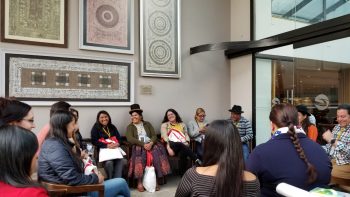

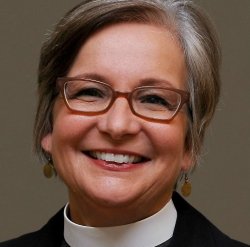
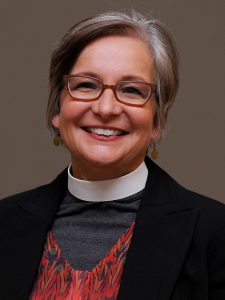 By Pastor Deb Stehlin
By Pastor Deb Stehlin 